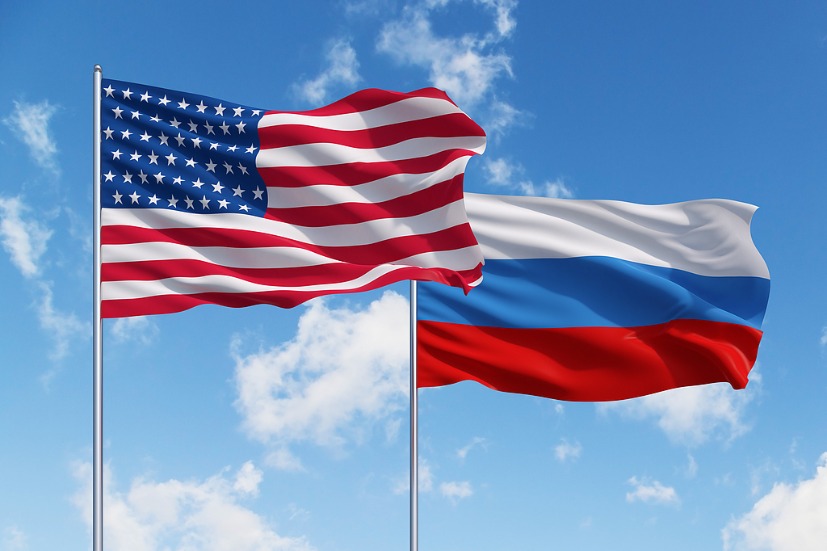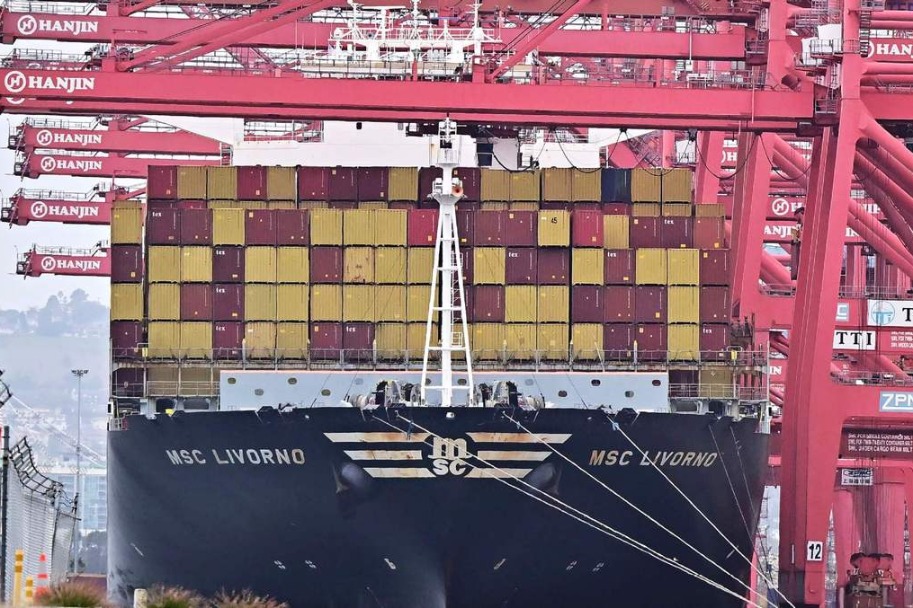US trade barriers will backfire on its economy

The US government's recent decision to impose tariffs on steel and aluminum imports has ignited a firestorm of global criticism, with allies and trading partners alike voicing their concerns over the United States' increasingly unilateral and hegemonic economic policies.
Far from being a measure to safeguard US industry, these protectionist acts expose a broader trend of economic nationalism that will not only backfire on the US but also destabilize global trade and push economies toward fragmentation.
The US has long championed the principles of free trade — when it suits its interests. However, the moment global market forces begin to challenge its supremacy, Washington quickly abandons the principles in favor of aggressive protectionism. This latest move on steel and aluminum tariffs is nothing more than a desperate attempt to shield the US' own declining industries, even if it is at the cost of global economic stability.
For decades, the US has enjoyed its position as the dominant economic force, dictating the rules of global trade and using institutions such as the International Monetary Fund and the World Bank as tools to enforce its will. However, the rise of economic powerhouses like China, the strengthening of regional alliances, and the increasing reliance of countries on alternative markets have eroded Washington's ability to unilaterally control global commerce.
Instead of adapting to these shifts, the US has chosen to react with force — imposing punitive tariffs, weaponizing the dollar, and sanctioning countries that refuse to fall in line.
While Washington attempts to justify these tariffs as a means of "protecting American workers", the reality is starkly different. The globalized nature of the supply chain means that these tariffs will ultimately drive up costs for US businesses, leading to higher prices for consumers and a potential rise in inflation. History has shown that protectionist policies rarely yield the desired results. On the contrary, they often cause domestic industries to become complacent, less competitive, and ultimately unviable.
The steel industry is a perfect example of this. By imposing higher import tariffs, the US government believes it is shielding domestic producers from competition. However, what it is actually doing is making raw materials more expensive for US manufacturers that rely on imported steel. This will drive up production costs for industries such as automotive, construction and energy, making their products more expensive both domestically and internationally.
Moreover, retaliation is inevitable. The affected trading partners will not sit idly while Washington distorts global trade in its favor forcefully. We cannot expect the affected parties not to retaliate. There will definitely be a response which I believe will not amuse the US government.
The world today stands at a defining moment. At a time when multilateralism should be encouraged to address post-pandemic economic recovery, supply chain disruptions, and the need for global economic stability, Washington's actions serve only to deepen divisions and accelerate economic decoupling.
The tariffs are not just about steel and aluminum — they symbolize a broader ideological battle between two contrasting economic visions. On one side is the US, clinging to its outdated notion of absolute dominance, using economic coercion to maintain control. On the other is a multipolar world that is moving toward shared prosperity, regional cooperation and mutual benefit.
China, for instance, has responded to Western protectionism by strengthening its economic ties with the Association of Southeast Asian Nations, BRICS nations, and the Belt and Road Initiative partners. Europe, increasingly frustrated by Washington's erratic economic policies, has sought to diversify its trade relationships to reduce dependency on the US market. The Global South, long marginalized by the US-led financial order, is now actively exploring alternative economic structures, including trade in local currencies and non-Western financial institutions.
The US must recognize that its economic hegemony is no longer sustainable. The world is changing, and those who fail to adapt will find themselves left behind. By imposing protectionist policies, Washington is not only harming its own economic prospects but is also accelerating its decline as a global leader.
A key lesson from history is that empires fall not because of external threats but due to their own hubris. The Roman Empire collapsed under the weight of its unsustainable expansion and internal corruption. The British Empire, once the world's most powerful economic force, fell because it refused to accept the shifting global order after World War II. The US is now at a similar crossroads.
If Washington continues down this path of economic isolationism and unilateral coercion, it will only hasten the decline of its influence. Other nations will move ahead with alternative economic frameworks, forging new alliances that diminish the relevance of US dominance. The dollar's status as the world's reserve currency is already being challenged by alternative payment systems, and economic mechanisms such as "BRICS Plus" are actively working toward reducing dependency on the Western financial system.
The US still has a choice to reverse course. Instead of imposing tariffs and resorting to economic coercion, Washington should seek cooperation through meaningful engagement with its trading partners. A rules-based, fair-trade system — one that does not disproportionately favor one nation at the expense of others — is the only viable path forward.
This would require a shift in policy from confrontation to collaboration, from imposing sanctions to negotiating trade agreements that are mutually beneficial. The US must recognize that its long-term prosperity depends not on economic dominance but on strategic partnerships and fair competition.
Unfortunately, the political reality in Washington makes this shift unlikely. The rise of economic nationalism, fueled by bipartisan rhetoric about "protecting American jobs", has made it difficult for rational economic policies to take precedence over populist posturing. However, reality will soon catch up with Washington's policymakers. The world is no longer willing to accept unilateral economic decisions that serve only US interests.
The US tariffs on steel and aluminum are not just about trade — they are a reflection of Washington's deeper struggle to maintain its waning dominance in an increasingly multipolar world. These protectionist measures will backfire, harming US industries, escalating trade tensions, and pushing the world further toward economic fragmentation.
At a time when cooperation is needed more than ever, Washington has chosen to stoke division. But the world is no longer willing to play by outdated rules. The global economic order is shifting, and nations are finding new pathways to prosperity that do not rely on US approval.
If the US does not change its course, it will soon find itself isolated, watching as the world moves ahead without it. What Washington sees as a strategy to maintain control will instead become the catalyst for its own economic decline. The choice is clear: adapt to the new realities of a multipolar world, or face the consequences of self-inflicted chaos.
The author is deputy editor-in-chief of Pakistan Economic Net and Daily Ittehad Media Group. The views do not necessarily reflect those of China Daily.

































